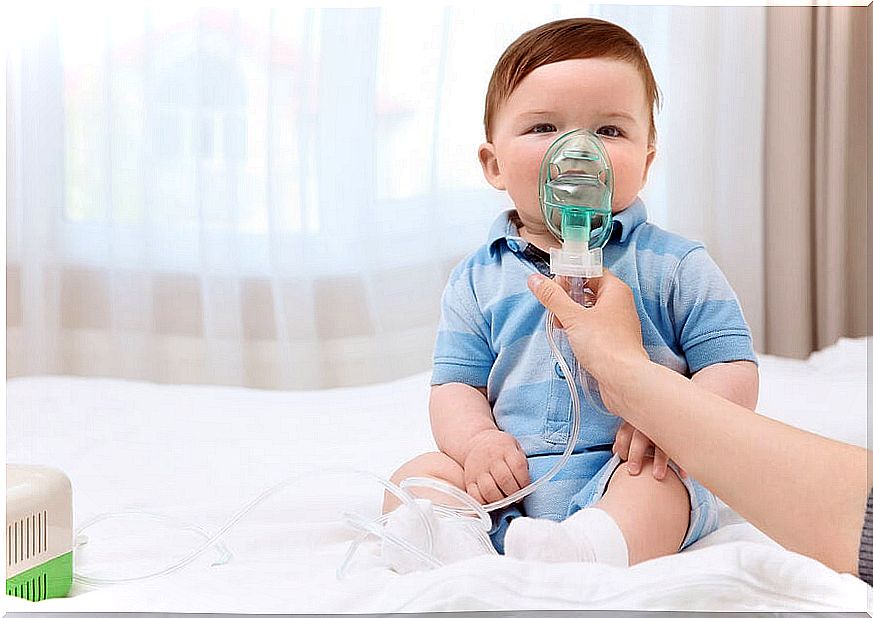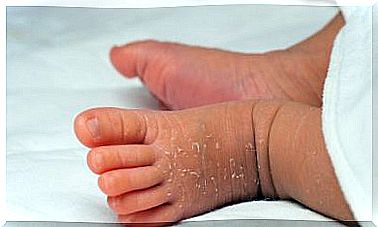What Is Vomiting With Blood?

Vomiting blood can have various causes. For example, they can occur as a result of an injury to the mouth, trauma, pathology, and so on. If the person who experiences them has been diagnosed with a disease, they should be seen immediately by a doctor, in order to avoid complications. Therefore, in many cases they are considered an emergency.
The amount of blood and the frequency of spitting up will depend on the cause of the problem. It is possible that blood has different characteristics in terms of color. In some cases it will be bright red and in others it may become darker (brown to black). In any case, only a doctor will be able to provide the diagnosis and the respective appropriate approach.
Possible causes of vomiting blood
There are many causes that can trigger bloody vomiting. Now, among the most common are the following that we are going to comment on below.
1. Dehydration
Dehydration can lead to a patient vomiting blood. Since the body is deprived of the lubrication that water offers, among other things, it experiences excessive pressure in all systems and, therefore, it is easier to injure itself. Therefore, when vomiting, it is possible that the bile is accompanied by blood.
2. Hunger or poor diet
An empty stomach can make you feel sick and cause you to vomit blood. It may sound strange, but if you don’t eat enough, your body will rebel by vomiting. Similarly, the lack of a balanced diet can lead to it as well. Eating stale or toxic foods during pregnancy is also the cause of blood in vomit.

3. Esophageal varices
Another cause of bloody vomiting is esophageal varices. These are enlarged veins in the walls of the lower esophagus that bleed, but do not usually cause any pain. They are often caused by alcoholic liver disease. If your doctor suspects that esophageal varices are the cause of the blood in your vomit, you should be admitted to the hospital immediately.
4. Gastritis
Gastritis is an inflammation of the stomach that causes harmful bacteria that infect the inner lining of the stomach. This disorder eventually presents with excessive vomiting of blood, accompanied by abdominal pain and weakness.
5. Cirrhosis
Lastly, cirrhosis is due to persistent alcohol consumption and leads to spikes in blood pressure. The blood vessels begin to dilate, which affects the esophagus, and in addition, the internal blood vessels become prone to ruptures. Symptoms of cirrhosis include vomiting huge amounts of bright red blood and, again, weakness.
Vomiting with blood in children
When vomiting with blood occurs in children, it is imperative to go to the pediatrician as soon as possible. Otherwise, the health of the child could be put at risk and lead to more complications (and also of greater intensity). Therefore, once detected, they should not be ignored.
It is important that parents take into account the frequency of vomiting and all its characteristics in order to inform the pediatrician in greater detail; The data will allow you to arrive at a more accurate diagnosis, once you have carried out your respective evaluation.
Some questions the doctor might ask are: When did the bloody vomiting start? What color is the blood and how much of it is in the vomit? What other symptoms does the little one have? Do you suffer from any chronic illness? Do you take any kind of medication? Did you have an accident? Have you ingested something bad or toxic? Symptoms
Before vomiting blood occurs, the child may experience certain symptoms, such as: paleness, abdominal pain, rapid breathing, nausea, fatigue, and irritability. You may also have: excessive perspiration, nausea, fever, and even diarrhea (acute to severe).

How to act on it?
While going to the emergency department or waiting for the pediatrician’s assistance, it is essential to avoid resorting to medication. Nor should the child be forced to drink fluids, not even water, since the cause of the problem is unknown, we do not know how successful it may be to take these types of measures (however simple they may seem).
Once the professional’s diagnosis is made, it will be necessary to follow each and every one of their indications in order to restore the child’s health. During the recovery phase, the doctor will indicate how the diet, hydration and other aspects of the day to day should be carried out.










